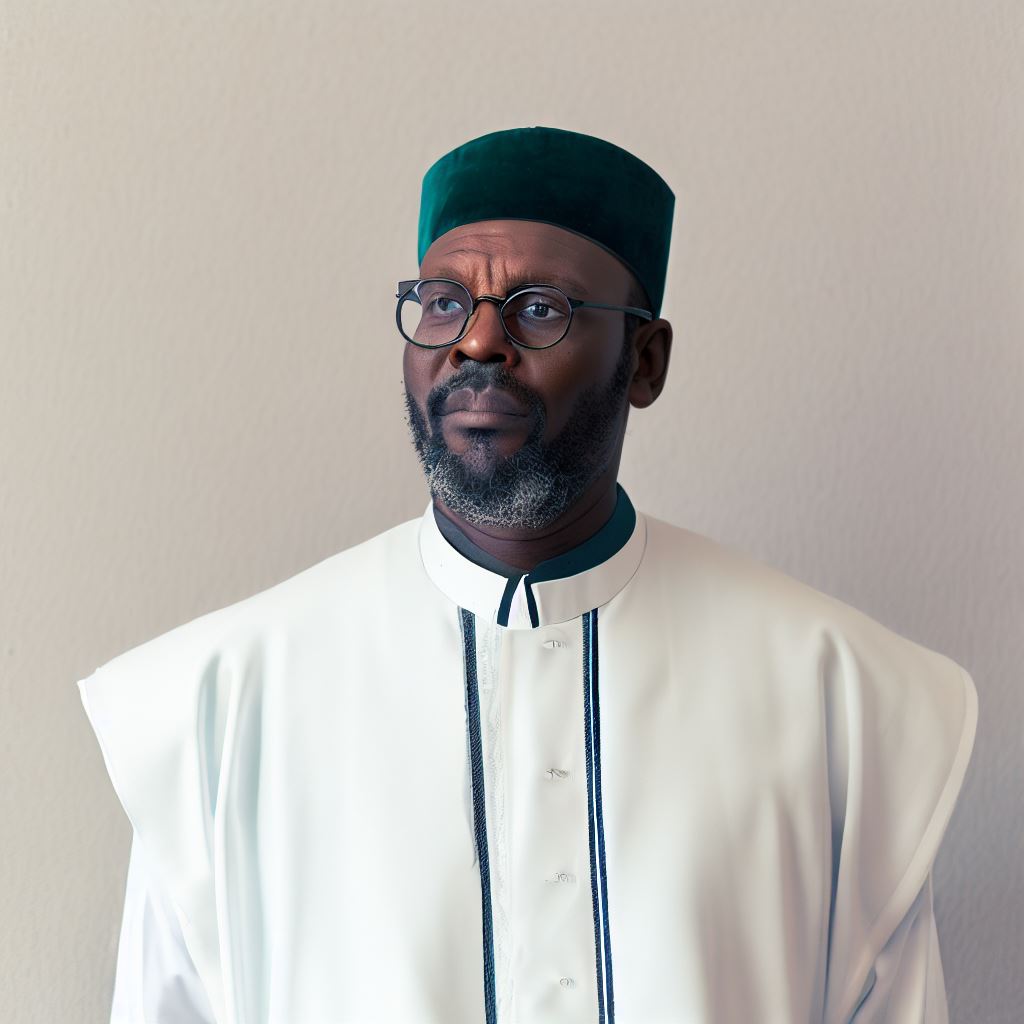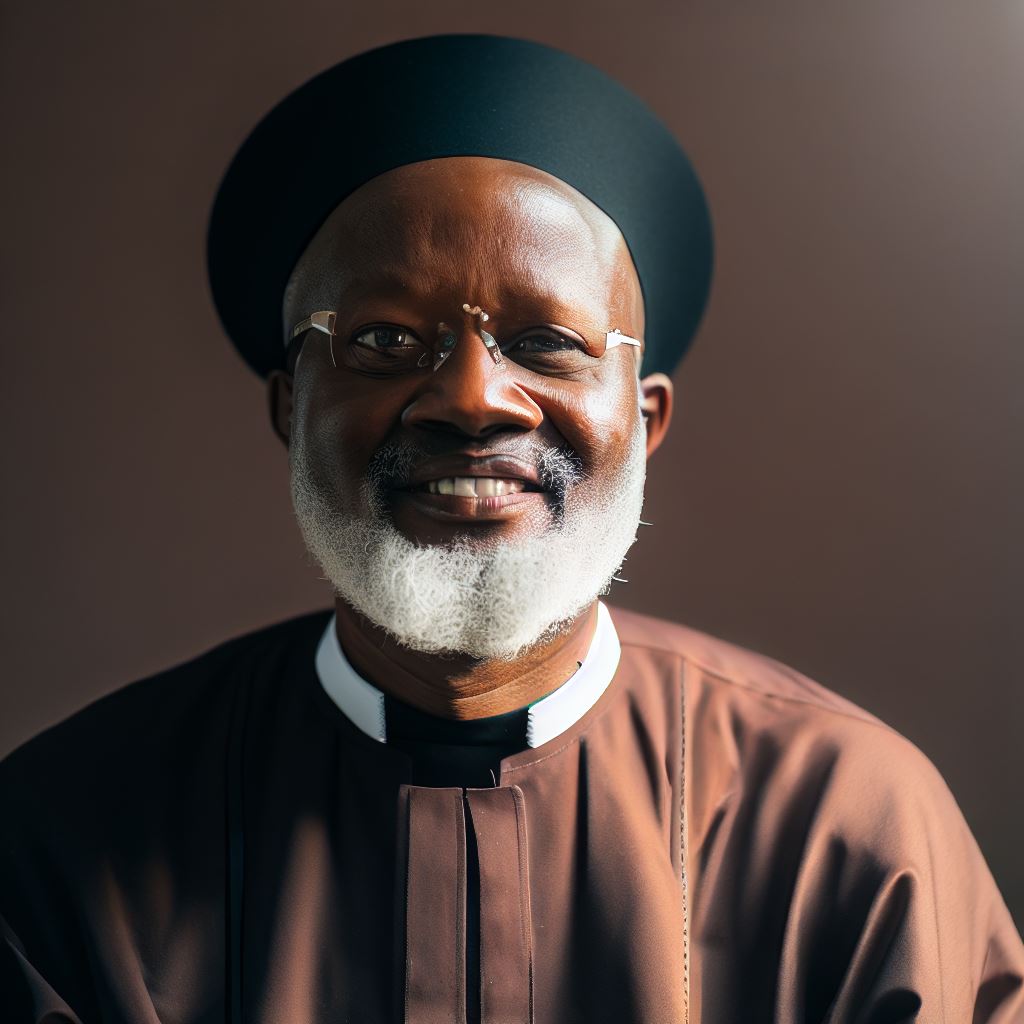Introduction
Clergy training holds significant importance in Nigeria due to its impact on religious practices and societal norms.
This blog post aims to provide an overview of the importance of clergy training in Nigeria and the purpose of discussing it further.
Importance of Training:
- Clergy play a pivotal role in guiding spiritual communities, necessitating thorough and ongoing training.
- Well-trained clergy enhance the religious experience, provide counsel, and foster strong communities.
- In Nigeria’s diverse religious landscape, clergy training promotes tolerance, understanding, and effective leadership.
Purpose of the Blog Post:
- This blog post aims to explore the critical role of training for clergy in Nigeria.
- We will delve into the challenges and opportunities within clergy education in the Nigerian context.
- By understanding the importance of training, we can support the growth and effectiveness of clergy in Nigeria.
Historical Context of Clergy Training in Nigeria
The development of Christianity in Nigeria
Christianity has a long history in Nigeria, dating back to the 15th century with the arrival of the Portuguese.
It experienced significant growth during the 19th century, primarily through the efforts of British missionaries.
Today, Nigeria is home to millions of Christians and diverse denominations, making it one of the largest Christian populations in Africa.
Early approaches to clergy training in the country
In the early stages of Christianity in Nigeria, clergy training was primarily informal and conducted through apprenticeship with experienced pastors.
Candidates would spend years under the mentorship of established clergy members, learning theology, pastoral skills, and leadership principles.
This approach, although effective in some ways, lacked a standardized curriculum and led to variations in the quality of training received by clergy.
Impact of colonialism on clergy training practices
The arrival of colonial powers in Nigeria, particularly the British, had a profound influence on clergy training practices.
The British introduced formal educational systems, including theological colleges, to train Nigerian clergy in a more structured manner.
These institutions played a crucial role in shaping the future of clergy training by providing a standardized curriculum and rigorous academic training.
However, they also imposed Western theological perspectives, leading to a degree of assimilation and the marginalization of indigenous practices.
Despite these challenges, the colonial period marked a significant leap forward in clergy training, offering a solid foundation for future developments.
Read: How to Join the Clergy in Nigeria: A Step-by-Step Guide
Current Training Initiatives
Existing institutions that offer training for clergy in Nigeria
- Nigeria is home to several institutions dedicated to providing training for clergy.
- University-based theological seminaries are among the primary institutions offering clergy training.
- Some of the prominent institutions include the Catholic Institute of West Africa in Port Harcourt, the Nigerian Baptist Theological Seminary in Ogbomoso, and the ECWA Theological Seminary in Kagoro.
- These institutions attract students from various religious denominations, fostering interfaith dialogue and understanding.
- These training centers also serve as hubs for research and scholarly activities in religious studies.
Examination of the curriculum and courses offered in these institutions
- The curriculum of theological seminaries typically includes a range of courses covering scripture, theology, pastoral care, ethics, and practical ministry.
- Students are exposed to both theoretical knowledge and practical skills necessary for effective clergy service.
- Modern challenges, including social issues and the impact of globalization, are addressed through specialized courses.
- Many seminaries also provide opportunities for students to gain practical experience through internships and fieldwork.
- The curriculum promotes critical thinking, analytical skills, and a deep understanding of religious doctrine.
Analysis of the quality and effectiveness of current training programs
- The quality and effectiveness of training programs vary across different institutions.
- Institutions that prioritize faculty development and maintain updated curricula tend to offer higher quality training.
- Well-qualified and experienced faculty members play a crucial role in shaping the clergy’s professional competence.
- Effective training programs emphasize practical skills, leadership development, and the ability to engage with diverse communities.
- Quality training equips clergy with the necessary tools to address the evolving needs of their congregations and society.
- Continuous evaluation and feedback mechanisms are essential to ensure the effectiveness of training initiatives.
- Collaboration between institutions, religious leaders, and relevant stakeholders is vital to enhance training programs.
- Periodic reviews and updates of curricula based on emerging challenges are essential to maintain relevance.
- Efforts should be made to integrate modern teaching techniques, technology, and online resources into training programs.
Nigeria boasts a diverse array of institutions offering training for clergy, including theological seminaries affiliated with universities.
These institutions play a crucial role in equipping future clergy with the necessary knowledge and skills to serve their communities effectively.
The curriculum offered by these institutions covers a wide range of subjects, combining theoretical knowledge with practical training.
The quality and effectiveness of training programs vary across institutions, emphasizing the importance of faculty development and updated curricula.
Continuous evaluation, collaboration, and integration of modern teaching methods are crucial for enhancing clergy training programs in Nigeria.
Read: Women in Nigeria’s Clergy: Roles and Responsibilities
Challenges and Issues in Clergy Training
Key challenges faced by clergy training institutions in Nigeria
- Inadequate infrastructure and facilities for training clergy in Nigeria.
- Limited number of qualified trainers and mentors to meet the increasing demand.
- Lack of standardized curriculum across different institutions, leading to inconsistency in clergy training.
- Religious and denominational differences that hinder collaboration and cooperation among institutions.
- Insufficient financial support from both the government and religious organizations.
Analysis of issues related to funding and resources
- Limited financial resources allocated to clergy training institutions by the government.
- Religious organizations often prioritize other areas of investment over clergy training.
- Inadequate provision of scholarships and grants for aspiring clergy students.
- Lack of access to modern technology and learning resources.
- Insufficient funding to update and maintain training facilities and equipment.
The relevance and contextualization of the curriculum
- Curriculum often lacks relevance to the current needs and challenges clergy face in Nigerian society.
- The curriculum fails to address critical issues such as poverty, corruption, and social injustice.
- Lack of contextualization, where the curriculum does not consider the local cultural and religious nuances.
- Inadequate practical training opportunities to apply theoretical knowledge in real-life scenarios.
- Insufficient emphasis on leadership and management skills necessary for clergy roles in their communities.
Overall, clergy training institutions in Nigeria face several challenges that impact the effectiveness and quality of clergy education.
The limited infrastructure, shortages of qualified trainers, and lack of standardized curriculum hinder the development of competent clergy.
Additionally, the issues related to funding and resources restrict the ability of these institutions to provide comprehensive training.
Insufficient financial support from the government and religious organizations leads to inadequate facilities, outdated technology, and limited access to learning resources.
This not only affects the quality of education but also hinders the development of essential skills required for clergy to address societal issues.
Furthermore, the curriculum’s content and contextualization play a crucial role in clergy training. However, often the curriculum fails to address relevant issues such as social injustice and corruption.
The lack of contextualization neglects the specific cultural and religious aspects of Nigeria, inhibiting the clergy’s ability to effectively engage with their communities.
Practical training opportunities are also essential for clergy students to apply their theoretical knowledge in real-life situations.
However, the current training programs do not prioritize practical experience, which restricts the clergy’s ability to serve their congregations effectively.
To address these challenges and issues, clergy training institutions in Nigeria need increased financial support from both the government and religious organizations.
Read: A Day in the Life of a Nigerian Priest: A True Account

See Related Content: Building a Community: A Nigerian Pastor’s Strategic Approach
Gain More Insights: Spiritual Growth and Development: A Pastor’s Guide in Nigeria
Recommendations for Improving Clergy Training
Proposal for increased collaboration among training institutions
- Facilitate partnerships and knowledge-sharing between seminaries, theological colleges, and training centers.
- Create consortiums to pool resources, expertise, and curriculum development efforts.
- Organize regular conferences and workshops to foster networking and collaboration among clergy trainers.
Introduction of practical and experiential learning opportunities
- Incorporate internships, fieldwork, and apprenticeships into clergy training programs.
- Encourage practical engagement in real-world ministry contexts to develop hands-on skills.
- Establish mentorship programs where experienced clergy guide and support trainees through their practical experiences.
Emphasis on holistic formation and pastoral skills development
- Adopt a comprehensive approach to training, encompassing spiritual, intellectual, emotional, and relational aspects.
- Provide courses on counseling, conflict resolution, leadership, and community development skills.
- Incorporate courses on ethics, social justice, and cultural sensitivity to enhance clergy’s understanding of diverse contexts.
Importance of ongoing professional development and mentoring programs
- Encourage clergy to participate in continuing education programs to stay updated with emerging trends and challenges.
- Establish mentorship programs for new clergy members to receive guidance from experienced mentors.
- Promote peer-to-peer learning and support networks among clergy to foster professional growth and accountability.
Improving clergy training in Nigeria requires a multi-faceted approach that includes increased collaboration among training institutions, the introduction of practical and experiential learning opportunities, an emphasis on holistic formation and pastoral skills development, and the establishment of ongoing professional development and mentoring programs.
By implementing these recommendations, Nigeria can enhance the quality of its clergy training, resulting in more competent and effective clergy who can address the complex challenges of today’s society.
Success Stories and Case Studies
Successful clergy training initiatives in Nigeria
- Redeemed Christian Church of God (RCCG) training program has empowered thousands of clergy members.
- The RCCG program focuses on providing theological education, leadership development, and practical ministry skills.
- Through this initiative, many clergy members have gained a comprehensive understanding of their roles.
- Success of this program can be seen in the positive transformation of RCCG churches across Nigeria.
- Another successful initiative is the Leadership Institute for Clergy Empowerment (LICE).
- LICE offers specialized training to clergy members from various denominations in Nigeria.
- The program equips clergy with skills in counseling, conflict resolution, and community engagement.
- LICE has produced numerous clergy who have become agents of change in their communities.
- These initiatives demonstrate the effectiveness of comprehensive training in developing clergy members.
- They serve as models for other training programs seeking to enhance clergy education in Nigeria.
Sharing inspiring stories of clergy who have benefited from comprehensive training
- Pastor Joshua, a clergy member who underwent RCCG’s training program, transformed his struggling church into a thriving community center.
- With his newfound knowledge, Pastor Joshua implemented innovative programs to address societal challenges.
- He organized skill acquisition programs, vocational training, and community outreach initiatives.
- Today, his church is an integral part of the community, providing support to the less privileged.
- Pastor Sarah, a graduate of LICE, has become a beacon of hope in her community.
- She established a counseling center within her church, offering guidance to individuals facing various life challenges.
- Her center has helped many people overcome addiction, depression, and marital problems.
- These success stories highlight the transformative impact of clergy training on individuals and communities.
- Trained clergy members are better equipped to address the complex needs of their congregations.
- They inspire others through their actions, uplifting their communities and fostering positive change.
The positive impact of well-trained clergy on communities
- Well-trained clergy members have the knowledge and skills to effectively address community issues.
- They understand the importance of collaboration and partnership with other community organizations.
- By leveraging their training, clergy can initiate and lead impactful social initiatives.
- They advocate for social justice, promote education, and provide healthcare services to marginalized populations.
- Well-trained clergy also serve as moral and ethical guides within their communities.
- They promote values such as honesty, integrity, and compassion through their teachings and actions.
- By empowering individuals spiritually and emotionally, clergy members contribute to community wellbeing.
- They offer support, guidance, and a sense of belonging to those in need.
- Moreover, well-trained clergy play a vital role in conflict resolution and peacebuilding.
- They foster reconciliation and unity among individuals, helping communities thrive in harmony.
Successful clergy training initiatives in Nigeria, such as the programs offered by RCCG and LICE, have resulted in inspiring stories of transformed clergy members.
These well-trained clergy have positively impacted their communities through various initiatives and have become agents of change.
Their success demonstrates the significant role of comprehensive training in equipping clergy to address community needs effectively.
The positive impact of well-trained clergy extends beyond the church walls, influencing social justice, education, healthcare, and peacebuilding in Nigeria.
Conclusion
Recap of the importance of clergy training in Nigeria
Clergy training in Nigeria plays a vital role in the spiritual growth and guidance of the nation. It equips religious leaders with the necessary skills, knowledge, and resources to effectively serve their communities.
Call to action for stakeholders to invest in improving clergy training
To ensure the development and effectiveness of clergy training in Nigeria, it is crucial for stakeholders, including religious institutions, government agencies, and educational institutions, to invest in its improvement.
Adequate funding and support will enable the creation of comprehensive training programs.
Final thoughts on the future of clergy training in Nigeria
The future of clergy training in Nigeria looks promising. With the growing recognition of the importance of spiritual leadership, there is an increasing demand for better training programs.
Continuous evaluation and enhancement of training methodologies will be crucial in addressing the evolving needs of clergy members and their communities.
Clergy training in Nigeria is an essential aspect of religious development and community service.
Investing in the improvement of training programs will lead to better-equipped religious leaders who can effectively serve their congregations and society at large.
The future of clergy training in Nigeria holds great potential for positive change and the spiritual growth of the nation.
Let us work together to ensure that clergy members receive the training and support they need to fulfill their vital roles in Nigeria’s religious landscape.




